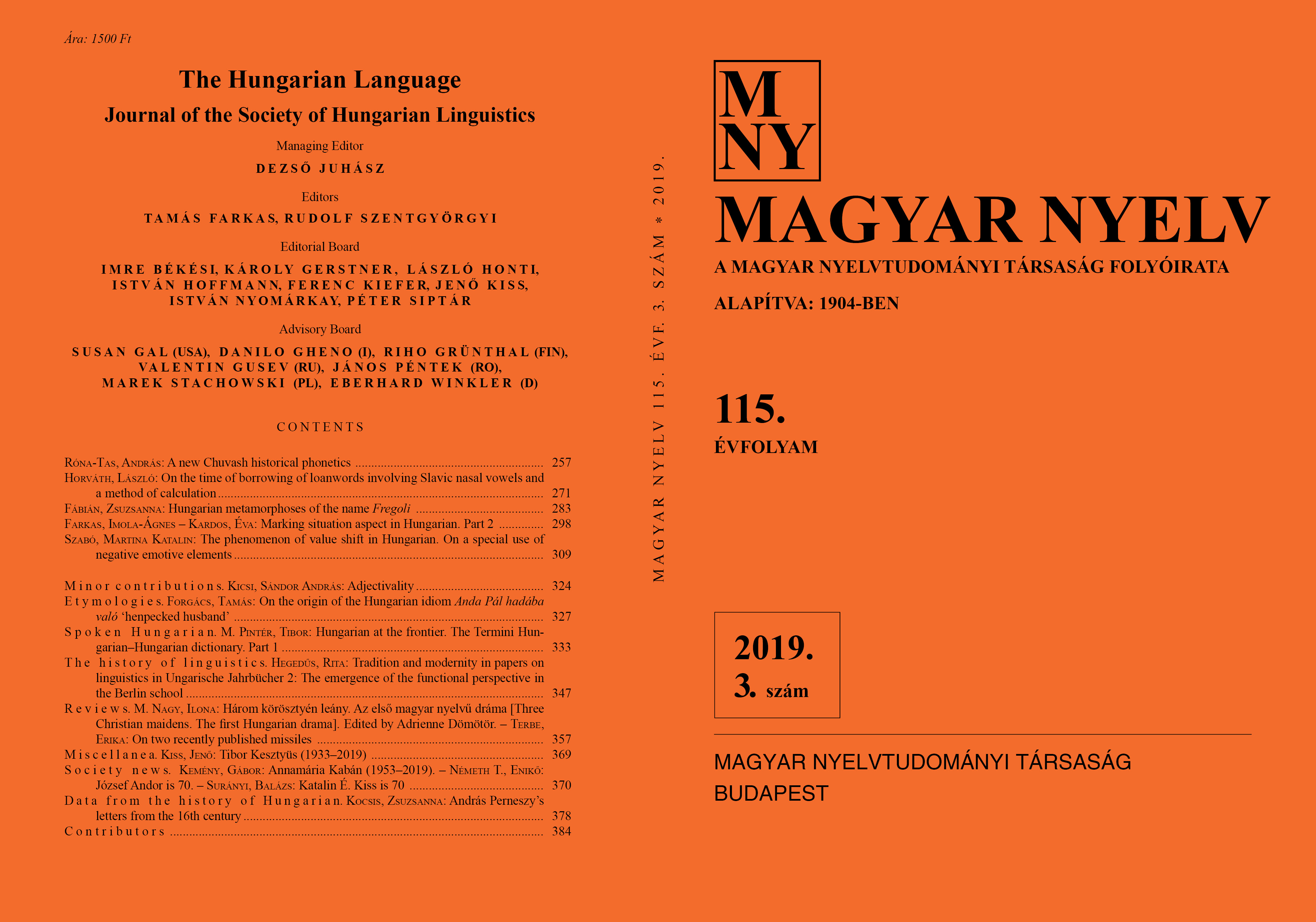Tradition and modernity in papers on linguistics in Ungarische Jahrbücher
2. The emergence of the functional perspective in the Berlin school
DOI:
https://doi.org/10.18349/MagyarNyelv.2019.3.347Keywords:
Comparative-Historical Linguistics, functional-contrasive approach, cognitivism, Ungarische Jahrbücher, BerlinAbstract
The 20th century has brought interesting changes in the humanities. Comparative-Historical Linguistics has reached its peak, and the paradigm framework has begun to come apart. Today we can see the following tendency: the main trends – at least for a while – have been taken over by formal theories: structuralism and generativism. The mainstream of Hungarian linguistics belonged to the German lineage and tried to connect to the trends established by Saussure and Chomsky. The functional-contrastive approach has been neglected for a long time, but it is finally leading to a definitively cognitive approach. A very important incubator of this development was the Institute for Hungarian Language in Berlin. My paper focuses on its activity in the light of scientific articles in the journal “Ungarische Jahrbücher”.
Downloads
Published
Versions
- 2019-12-07 (2)
- 2019-12-07 (1)
Issue
Section
License
Copyright (c) 2024 Rita Hegedűs

This work is licensed under a Creative Commons Attribution-NonCommercial-NoDerivatives 4.0 International License.
Magyar Nyelv is a Diamond Open Access periodical. Documents can be freely downloaded and duplicated in an electronic format, and can be used unchanged and with due reference to the original source. Such use must not serve commercial purposes. In the case of any form of dissemination and use, Hungarian Copyright Act LXXVI/1999 and related laws are to be observed. The electronic version of the journal is subject to the regulations of CC BY-NC-ND (Creative Commons – Attribution-NonCommercial-NoDerivatives).
The journal permits its authors, at no cost and without any temporal limitation, to make pre-print copies of their manuscripts publicly available via email or in their own homepage or that of their institution, or in either closed or free-for-all repositories of their institutions/universities, or other non-profit websites, in the form accepted by the journal editor for publication and even containing amendments on the basis of reviewers’ comments. When the authors publicize their papers in this manner, they have to warn their readers that the manuscript at hand is not the final published version of the work. Once the paper has been published in a printed or online form, the authors are allowed (and advised) to use that (post-print) version for the above purposes. In that case, they have to indicate the exact location and other data of the journal publication. The authors retain the copyright of their papers; however, in the case of an occasional secondary publication, the bibliographical data of the first publication have to be included.



